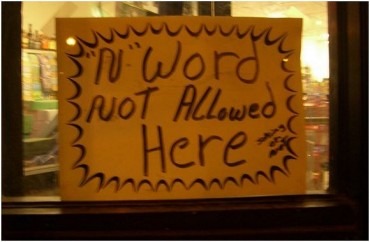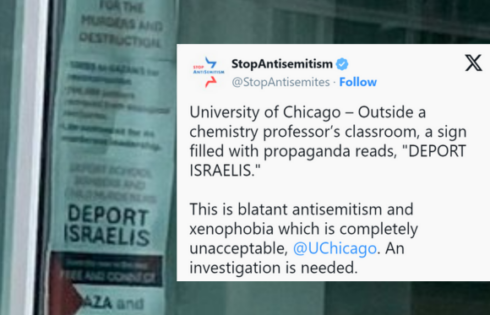
Another white academic is in hot water for using the N-word — in context — and this time Donald Trump is partly to blame.
Sonoma State Dean of Arts and Humanities Hollis Robbins, ironically a “noted scholar of nineteenth-century American and African American literature, film, and poetry,” quoted the racial slur while reading poems by Amiri Baraka and Langston Hughes during a guest appearance in a multicultural class.
According to the Sonoma State Star, after the “incident […] spread to faculty, staff, and students on campus” Robbins invited folks to a confab so she could apologize, discuss the matter, and to “come up with a resolution moving forward.”
“[M]ostly I wanted to hear the hurt. I heard the hurt, I acknowledge the hurt, and I’m sorry about the hurt deeply,” Robbins said.
Citing her “lack of awareness of the campus climate,” Robbins added that the last time she had read the poems three years ago, “there was no Donald Trump in the White House.”
“I’ve learned that this hasn’t been a great climate, and I apologize for not knowing that,” she said.
Among the many faculty and staff that spoke up, Cookie Garrett, the area coordinator for resident living area Beaujolais, advisor for the Black Student Union, and the staff co-chair of the Black Faculty and Staff Association, expressed herself on behalf of the black students that come to her for support.
“From a personal standpoint, as a black woman and as a professional staff member of this campus, I have heard so many things in my short time here, of where students have been offended in the classroom, have been by advisors by other students, and no one really speaks up to say this is a problem we need to address” Garrett said, addressing that many of the racial incidents that happen on campus go unreported and unresolved.
“It’s the matter of the climate and the context of Sonoma State,” EOP Senior Advisor Andre Bailey said. “It’s not so much you, it’s the systematic idea that on the basis that the issue or the issue of concern is not being taken into account from a serious standpoint. And I think it’s evident to be in a room where there’s not enough seats here even now.” …
Sophomore Loren Smith, who was in the class, said, “I really enjoyed the poems, but it was more so an afterthought after thinking of my discomfort in that space.”
“I know that you can read about it in your history books and your textbooks and your very advanced scholarly books that you’ve got,” Crystal Jimenez, an Afro-Latinx student, told Robbins, “but you’ve never gone through that experience, and you’re never going to understand that.”
In a statement, Provost Lisa Vollendorf said “Studying historical material is an important aspect of the university experience. Yet it is important to recognize that studying material meant to be provocative in its day – and that resonates in offensive ways today – presents challenges to instructors and students alike.”
It sure does, Dr. Vollendorf, but what’s the end game? This is but the latest incident in which a (white) academic has been raked over the racial grievance coals for using the epithet in context. Should a campus resolution ban outright use of the term by anyone not black? Of course, there are then issues of academic freedom and the First Amendment to consider. Sonoma State is a public institution, after all.
MORE: Anger at instructor cleared for using n-word in description of n-word incident
MORE: Augsburg U. prof suspended for using N-word (in context) in class
IMAGE: Oxalis37 / Flickr.com
Like The College Fix on Facebook / Follow us on Twitter






Please join the conversation about our stories on Facebook, Twitter, Instagram, Reddit, MeWe, Rumble, Gab, Minds and Gettr.